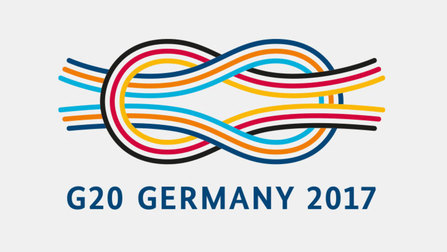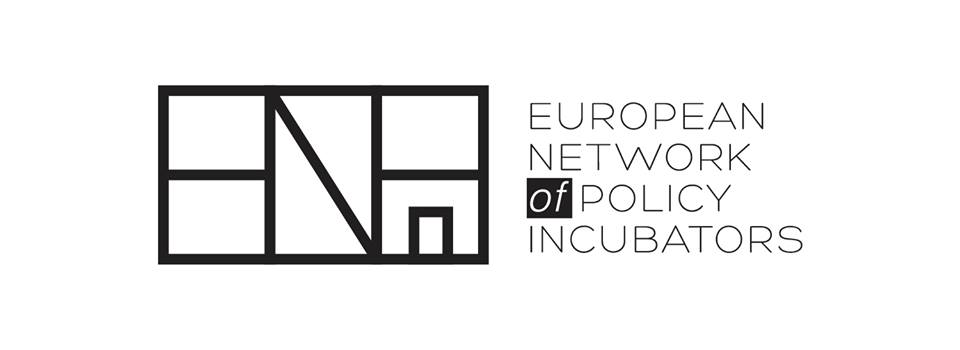
The G20 Summit between self-globalizing states and military buildup, Teodor Kalpakchiev, the-enpi.org
 This work is licensed under a Creative Commons Attribution-NonCommercial-NoDerivatives 4.0 International License.
This work is licensed under a Creative Commons Attribution-NonCommercial-NoDerivatives 4.0 International License.
The world is now heading to the Hanseatic city of Hamburg, which has been one of the beating economic hearts of Germany for 800 years. However, for its hosting of a number of news outlets, it was a target of the violence of the extraparliamentary opposition, organized by the RAF in the 1970s. With the G20 Summit it seems that these two dimensions are converging. Since the global financial crisis, a stillborn balloon of the laissez-faire that brought one-third of the world’s wealth in the United States, many have taken rather distinct views. The EU, a supranational, state-like, non-state entity remains continuously committed to bringing together the best of world’s political philosophy in its trade deals by incorporating the odd externalities of liberalism such as welfare inequalities, environmental injustice and societal alienation. The isolationist West is dearly concerned with sharing its economic attainments with newcomers, while the East, led by China’s fast paced rebirth from a backward looking poverty stricken communist experiment to a blend of state-like control over the effects of capitalism with a globalization of the inner self.
To many, this is an expensive political meetup in times when problems are manifold. The sum of their actions construct non-governmentalism, which oftentimes takes a subjective and radical approach to societal problems. With G20 Germany has intentionally added up a new branch to world’s governance, which is inspired by the Sozialemarktwirtschaft and the culture of creating networks of structures. In essence, the inclusion of a civil society and youth component marks a transgression from the word “summit”, which in German translates as a meeting on the peak (das Gipfeltreffen). The tradition, which stems from the times of the German Staemmen (tribes) emphasizes the importance of equality over hierarchy. Its significant benefit is the ideational inclusion, which however grants a form of authority in its modern sense. With the police, the supreme organ of control over anarchistic propagations, being stripped of its own, the rise of ultra-leftist formations in Europe such as the Left in Germany and DiEM25 in Greece could easily utilize the potential clash between an authorizing society and disloyal state organs that are the embodiment of the all-encompassing bureaucratic and elitist alienation. However, the left not simply a synonym of the humanistic societal foundations, but also an allegory for the Eurasian alternative for political governance. Albeit not interchangeable, they reveal yet another mean for pressure over democracy in a social market economy.
With the Russian fast-paced incorporation of its newest democratic self-determined constituents in the background, the pressure over the buffer zone beyond EU’s eastern borders has renewed the concurrent manifestation of strength by the United States. For being largely isolated by Western powers, he has decided to play the forsaken card of historical memory that provides him psychological advantage over Germany, which still feels ill at ease with the topic. The EU’s continuous investment in Polish infrastructure has brought Warsaw much closer to the West not only in terms of outlook, but also in terms of economic practices. The polish voice is the strongest within the sub-regional backlash against what is seen as German externalization of internal historical responsibilities onto the European policy agenda. The recent Austrian plug into the V4’s favour of control over excessive migration uploads the topic onto the agenda consisting of trade, globalization, poverty and security issues.

What can one expect during the meeting of G20? Trump would most probably try to use his new allegiance with the Shia and the anti-migrant rhetoric to plunge into a well-organized, structured discussion. For the EU is attempting to establish its own security community, his is intent on being identified as the biggest troublemaker for Russia, thus cementing Ukraine as the biggest dividing factor and dooming any possible advancement of the Minsk 2.0 accords. China’s 11$ billion funding of Russia’s state development bank could be seen as a fortification of the one belt aspirations and could be utilized by Germany to press over the Ukrainian issues. The trade-globalization-development nexus would definitely stand firm on top of the agenda, as the readjustments of the winners and losers of globalization is probably what German social market democracy has most answers for. With no concessions planned for Brexit, the crucial aim of the hosts would be to multiply European standards of governance in the developing world and according to the high aspirations of its trade agreements with the rest of the global north.

